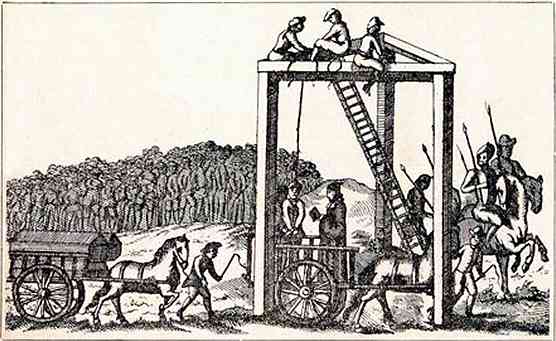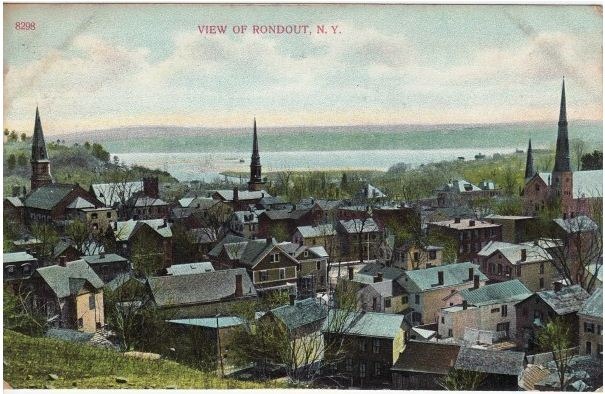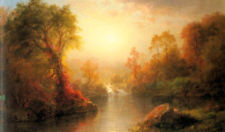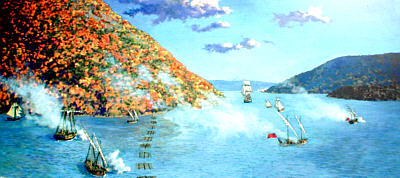
“Old Ulster Tories”
Excerpted from Olde Ulster: An Historical and Genealogical Magazine, October 1906
The Clinton papers contain many accounts of courts-martial to to try Tories. A number were convicted and sentenced to confinement and a less number to the gallows but only two suffered capital punishment for their offenses. These were Jacob Middagh and Jacobus Roosa, who were hung on May 12, 1777. They had been scouring the county for recruits for the British army and promising all manner of pecuniary reward to those whom they could delude into stealing through the American lines to take service in the ranks of the king. When captured they were piloting quite a company over mountain and through woodland paths to the same service. They received three dollars in gold therefor and were to have an allotment of the lands of the patriots when the latter were subdued.
Years ago a question arose as to the spot upon which Roosa and Middagh had pad the extreme penalty of the law. The late Charles McEntee some eighty years ago interviewed Abraham Slecht regarding his recollections of the burning of Kingston. Slecht was a young man of twenty-two on that October day of 1777 and had watched the landing of the troops of Vaughan from his father’s house on the south side of Rondout creek and had followed in their rear up the hill of Rondout. His description was that he first caught sight of the burned town from the two big pines upon which the Tories had been hanged. The stone houses seemed still standing until after he had crossed the intervening plain, when he found that what he had seen were but the naked walls of the burned buildings. When asked where those pines stood he replied that they were where the wooded knolls ended and the sandy, open plain began along the road from the Strand to Kingston, and located them on the knoll in the O’Reilly grove opposite the Kingston entrance to the present City Hall.
It is probable that Roosa and Middagh, leaders though they were in deluding the rabble and selling them to the British service, might have had their punishment commuted to imprisonment as was done to the others, had public sentiment not been so strong. Had none suffered the extreme punishment lynch laws would have assaulted the jail and Fleet Prison for victims. Official documents give evidence of this.
Barber and Howe’s “Historical Collections of the State of New York” published many years ago, in speaking of this execution says:
“Judge Hasbrouck, of Kingston, who was at this time a lad, says that two of them were hung on the first hill from the landing. It appears that these unfortunate men expected to be reprieved; when they drew near the gallows and saw the preparations for their execution they became overwhelmed with a sense of their awful situation and exclaimed: ‘Oh, Heer! vergeeveen onze sonde!’ (Oh, Lord! forgive our sin!) The father of Judge Hasbrouck, one of the principal men of the place, although a firm friend of the American cause, was opposed to the execution, and suffered much anguish of mind on account of these harsh and bloody measures. These men, although Tories, were persons of respectability, who had families. Between twenty and thirty royalists who were taken up, enlisted in the American army and thus saved their lives.”
The cost of the execution was paid by the Council of Safety. The bill rendered for the services is a curiosity:
1777 May 13th – The State of New York
To Collo. Jacob Hoornbeek for executing
Jacobus Rosa and Jacob Medeagh
To Disguising the Hangman and other Necessaries…………… £4.0.0
To 2 Coffins…………………………………………………… 3.0.0
To paid to persons to Bury the above Criminals……………… 1.0.0
To John McKneel for Erecting the Gallows &c………………. 1.0.0
To Jacobus Louw for Disguising the Hangman and other Necessaries 0.10.0
To money Expended for Collo. Hoornbeck for
himself & Egbert Dumond (the Sheriff) in
attending said Execution…………………… 2.0.6
The above account is just and true
By me, Jacob Hoornbeck
In Council of Safety &c. Sept’r 3d, 1777 – ordered that the above Acct. be referred to the Auditor Gen’l that the audit the same for payment –
Rob’t Benson, Secr’y
Audited and paid Sept. 3, 177
The following is from the Revolutionary Papers, State of New York, Vol. II
To the Honorable the Convention of the State of New York
The Humble Petition of Jacobus Rose and Jacob Midah, two unhappy Prisoners, was by order of your House under sentence to be Hanged this Day Most Humbly Showeth,
That altho their Consciences doth not in the least accuse them of being Guilty of any sin against God or their Country, by doing what they are condemned to suffer Death for, yet your Petitioners are heartily sorry for having incurr’d the Displeasure of your House in so sensible a manner. That as sinfull men it is an awfull and Dreadfull thought to be so suddenly sent to Eternity without any time to Repent of the Sins of our past Lives, and to make our peace with that God who must finally judge us all for the Deeds done in the flesh, that therefore to prepare for this great and awfull trial your Petitioners most Humbly beg they may have a Repsite of a few Days, and your Petitioners as in Duty bound shall in the mean while earnestly pray.
Jacobus Rose
Jacob (his mark) Midagh
Kingston, May 13, 1777
Petition Rejected



